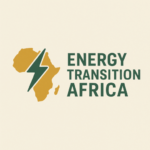In the corridors of global climate diplomacy, a new treaty is taking shape. The Fossil Fuel Non-Proliferation Treaty, backed by climate leaders like Kumi Naidoo and supported by a growing coalition of nations and cities, seeks to halt new fossil fuel exploration and accelerate a just transition to clean energy. Its ambition echoes the nuclear disarmament agreements of the Cold War era. But in the towns of Hoima, Uganda, and the mines of Kolwezi, Democratic Republic of Congo, the idea of giving up fossil fuels is met with a very different calculus: survival, sovereignty and development.
Africa sits at a crossroads in the global push for the fossil fuel phase-out in Africa. The continent contributes less than 4% of global greenhouse gas emissions but is already suffering some of the worst climate impacts, from droughts in the Sahel to floods in Mozambique. The idea of a treaty to phase out fossil fuels should, in theory, align with Africa’s long-term climate interests. But the reality is far more complex.
A Treaty Gains Momentum, But Who Writes the Terms?
The Fossil Fuel Non-Proliferation Treaty proposal gained fresh urgency in June 2024 when the International Court of Justice (ICJ) issued an advisory opinion stating that states failing to act on climate change could be held liable for violating human rights. This legal framing shifts the phase-out debate into new terrain: from science to law, from voluntary to obligatory.
Backers of the treaty argue it is a logical step. “We cannot keep drilling for oil and gas while claiming to protect our children’s future,” said Kumi Naidoo, the South African activist and former Greenpeace Executive Director, at a recent climate justice forum.
Yet, from African governments’ perspective, these calls often arrive alongside stark economic realities. In countries like Nigeria, Angola, and Equatorial Guinea, fossil fuel revenues still account for up to 90% of export earnings. Even in Uganda, preparing to export its first oil via the controversial East African Crude Oil Pipeline (EACOP), officials argue that hydrocarbons are essential to fund roads, schools, and energy access.
In our previous blog, we examined the fiscal dependence many African governments have on fossil revenues. The phase-out conversation must grapple with this uncomfortable truth.
Human Stories in the Crossfire
In Ghana’s Western Region, near the oil hub of Takoradi, fishermen like Kweku speak of both opportunity and loss. “When the oil rigs came, we thought it meant jobs. But our catch has fallen. The sea is restless, and access is restricted,” he says. His story is echoed across coastal communities, where fossil expansion often brings displacement, but not development.
In Uganda, communities around Lake Albert have been divided over EACOP. The pipeline promises jobs, but land acquisition has sparked protests. Environmental defenders like Joanita, a youth climate activist in Kampala, warn that oil could become “our new curse, not our blessing.”
And in Kolwezi, DRC, where cobalt mining dominates, fossil fuel debates intersect with energy transition dilemmas. Artisanal miners like Lukusa rely on diesel generators for basic tasks, even as they dig minerals destined for electric vehicles. “They tell us to move to solar, but we cannot afford it,” he shrugs.
These personal stories reveal the contradictions. Africa is both a victim of fossil fuel extraction and a late entrant seeking its benefits. A treaty must address these asymmetries.
Treaty vs. Transition: The Sovereignty Question
Critics of the treaty within Africa argue that global climate frameworks often come with double standards. While Europe continues to subsidise gas in response to the war in Ukraine, African nations are pressured to cancel gas infrastructure plans. This disparity was highlighted during COP27 in Egypt, where former President Macky Sall of Senegal insisted that Africa must be allowed to use its resources “for a fair transition.”
In Nigeria, the recently launched Decade of Gas policy positions gas as a “transition fuel,” even as donor institutions like the World Bank signal reluctance to finance fossil-related projects. The tension is growing between global climate ambition and national development rights.
This raises a vital question: Can African countries support a fossil phase-out treaty while safeguarding their right to self-determined transition pathways?
Our post on energy justice explores this theme further, highlighting how fairness must include differentiated responsibilities.
Towards an African Approach
Rather than reject the treaty outright, some African experts suggest a reframing. “Let Africa lead on its own terms,” says Dr. Aisha Akinyemi, a Nigerian energy researcher. “Support our renewables, help fund our grid expansion, and let us commit to a fair fossil exit, not an abrupt one.”
This view aligns with the African Group of Negotiators’ position at climate summits: endorse transition, but demand equity. Civil society organisations like Power Shift Africa and PWYP have called for climate finance, technology transfer, and capacity building as prerequisites.
A treaty that integrates these elements, explicit funding mechanisms, just transition plans, and regional flexibility, could gain traction.
What Communities Want
From fisherfolk in Ghana to pastoralists in northern Kenya, community voices increasingly demand inclusion in transition planning. They want energy access, jobs, compensation for damage, and participation in decision-making.
At a town hall in Buliisa, Uganda, organised by local NGOs, youth leader Samuel asked a vital question: “If we leave oil in the ground, what will replace the livelihoods it promised?”
That is the question any global treaty must answer.
Conclusion: Treaty, Trap or Turning Point?
The Fossil Fuel Non-Proliferation Treaty is not inherently bad for Africa. It could become a catalyst for equity if African voices are at the centre of its design. But without that, it risks becoming another top-down imposition that sacrifices energy-poor communities on the altar of global ambition.
As the world debates the future of oil, gas, and coal, Africa must not be a passive spectator. It must be a co-author.
In Hoima, Kolwezi, and Takoradi, the path forward will not be written in treaties alone, but in the choices we make to balance environment and equity, ambition and autonomy.

